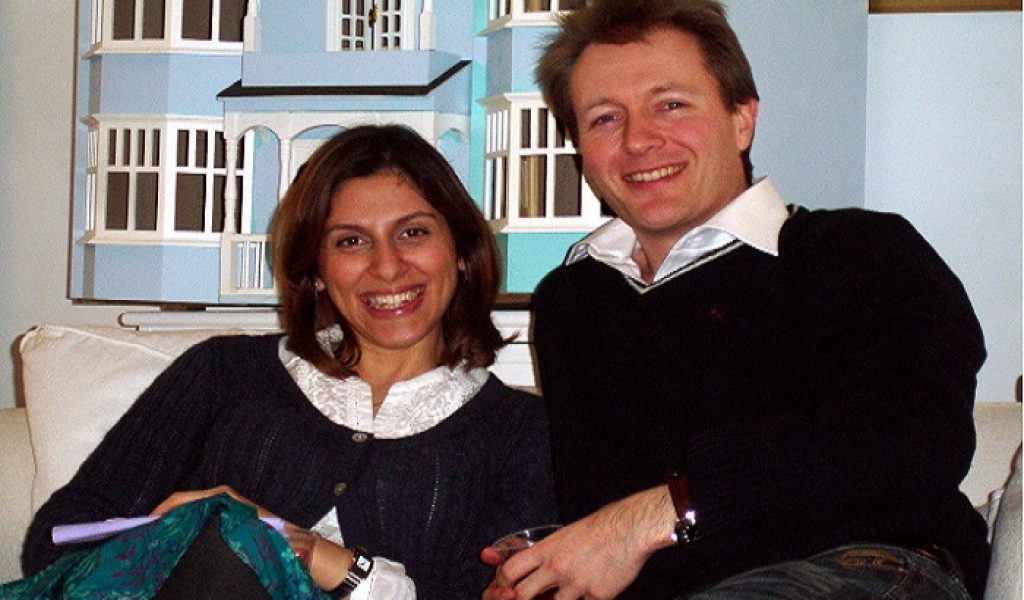Iran and political prisoners: Nazanin Zaghari-Ratcliffe’s release

Features Editor Catherine Stone considers the international diplomatic implications of the release of key British-Iranian political prisoners this year.
Nazanin Zaghari-Ratcliffe was released five months ago after a gruelling six-year imprisonment in Evin prison, Tehran, during which she was left constantly in the dark about when she would be released. She and fellow British-Iranian detainee Anoosheh Ashoori landed back in the UK on 17 March after a sudden announcement by Iran. Her long ordeal was ensured by a legal and diplomatic deadlock between the British and Iranian governments over outstanding British debt to Iran from the 1970s – with four former Foreign Secretaries failing to negotiate her release. Throughout the process, her high-profile case has brought attention to issues of political imprisonment, state repression and the realities of diplomacy. The negotiated release was hailed by the Foreign Office in the official press statement as a triumph of ‘tenacious and creative British diplomacy’ and has become a cornerstone of Liz Truss’ campaign to become Conservative Party leader. However, questions are now arising about the complex behind-the-scenes political decisions in an ongoing parliamentary enquiry.
Zaghari-Ratcliffe was arrested and imprisoned in April 2016 during a holiday to see family. The Iranian government accused her of plotting to overthrow the regime and disseminating propaganda through involvement in a BBC Persian online journalism course, despite only having briefly worked for BBC Media Action several years before. The Iranian state is very hostile towards BBC Persian, and journalists on their staff have long been the subject of a sustained campaign of intimidation and harassment in attempts to curb freedoms of expression and information. Iran does not recognize dual citizenship, considering Zaghari-Ratcliffe under sole Iranian jurisdiction and therefore denying her access to British consular services. She has since faced several rounds of trials in Iranian courts, without any official charges ever being made public.
The confirmation of the debt payment gives the appearance of a ransom payment for a political hostage
While both authorities denied it, the price of Zaghari-Ratcliffe’s freedom was likely an acknowledged outstanding British debt of £400 million to Iran from a 1970s military order of tanks unfulfilled after the Islamic Revolution of 1979. Iran had been unable to receive payments while under British sanctions for nuclear development. The confirmation of payment of this IMS debt (International Military Services) ‘in parallel’ in Zaghari-Ratcliffe’s release Foreign Office briefing gives the appearance of a ransom payment for a political hostage.
Political prisoner issues are largely symbolic expressions of national power in bilateral relations and in contravention of international law concerning hostages. Despite this, states such as Iran are increasingly using tactics of ‘hostage diplomacy’ to advance their international agenda. The forces that promote Iranian state control have only grown in power in the country with Sadeq Amoli Larijani – the chief justice who presided over Zaghari-Ratcliffe’s incarceration – was elected Iranian President last year. In response to this threat, President Biden signed an executive order last month declaring hostage diplomacy a national emergency and calling for increased sanctions.
Hopes of Nazanin’s imminent release had been raised in the past, such as the expiration of her initial five-year sentence in April last year, before she was found guilty on another sentence and her imprisonment extended. Her husband Richard Ratcliffe’s consistent campaigning, including his public hunger strike last autumn, ensured the case never left the orbit of the UK media for long and has remained the most high-profile ongoing Foreign Office dispute with a foreign government. Zaghari-Ratcliffe has also been on several hunger strikes herself to protest during her detention and has given interviews to the media from prison. The resultant public pressure has been damaging to Whitehall’s reputation and has drawn fire from various quarters for being inadequate. Boris Johnson, during his former tenure as foreign secretary, was criticised for his misrepresentation of the situation by asserting that she was ‘teaching people journalism’ in a statement to a parliamentary committee in 2017. Notably, Zaghari-Ratcliffe expressed her palpable anger at the UK government in her first interview after her return.
Iranian hostility to Western intervention is rooted in a history of resource and territorial sovereignty incursions, such as the British and American engineered coup against the elected prime minister Mohammad Mossadegh in 1953, which remains unacknowledged by the UK government. Iranian political interactions with the West have been particularly hostile during the last ten years, with US-Iranian relations being dealt severe blows under the premiership of Donald Trump by protracted issues such as the 2015 nuclear deal. This climate has affected American-Iranian detainees like Morad Tahbaz, a tri-citizenship holder being treated under different conditions and subject to American negotiations with Iran.
Without further action, it remains uncertain whether this tenuous international political situation will remain, with Zaghari-Ratcliffe’s release a bittersweet victory set against countless ongoing injustices
Whether this year will prove to be a turning point in Western-Iranian relations is still to be seen. The release of Zaghari-Ratcliffe and Ashoori has raised hopes of a revised nuclear deal and possible oil and gas negotiations in the face of embargos on Russian resources. Without further action, it remains uncertain whether this tenuous international political situation will remain, with Zaghari-Ratcliffe’s release a bittersweet victory set against countless ongoing injustices. In a guest essay for the Guardian this month, Richard Ratcliffe alleged that Liz Truss and the British government have ‘failed’ his wife, breaking the Foreign Secretary’s promise to the family to ensure ‘hostage-taking does not pay’ by electing not to enact ‘Magnitsky sanctions’ against ten key individuals on file in the ‘hostage industry’ of Iran. Ratcliffe reiterates the importance of not losing sight of these continuing issues in the ‘carousel’ of recent politics, where real action falls to the wayside, replaced with empty campaign achievements or promises.


